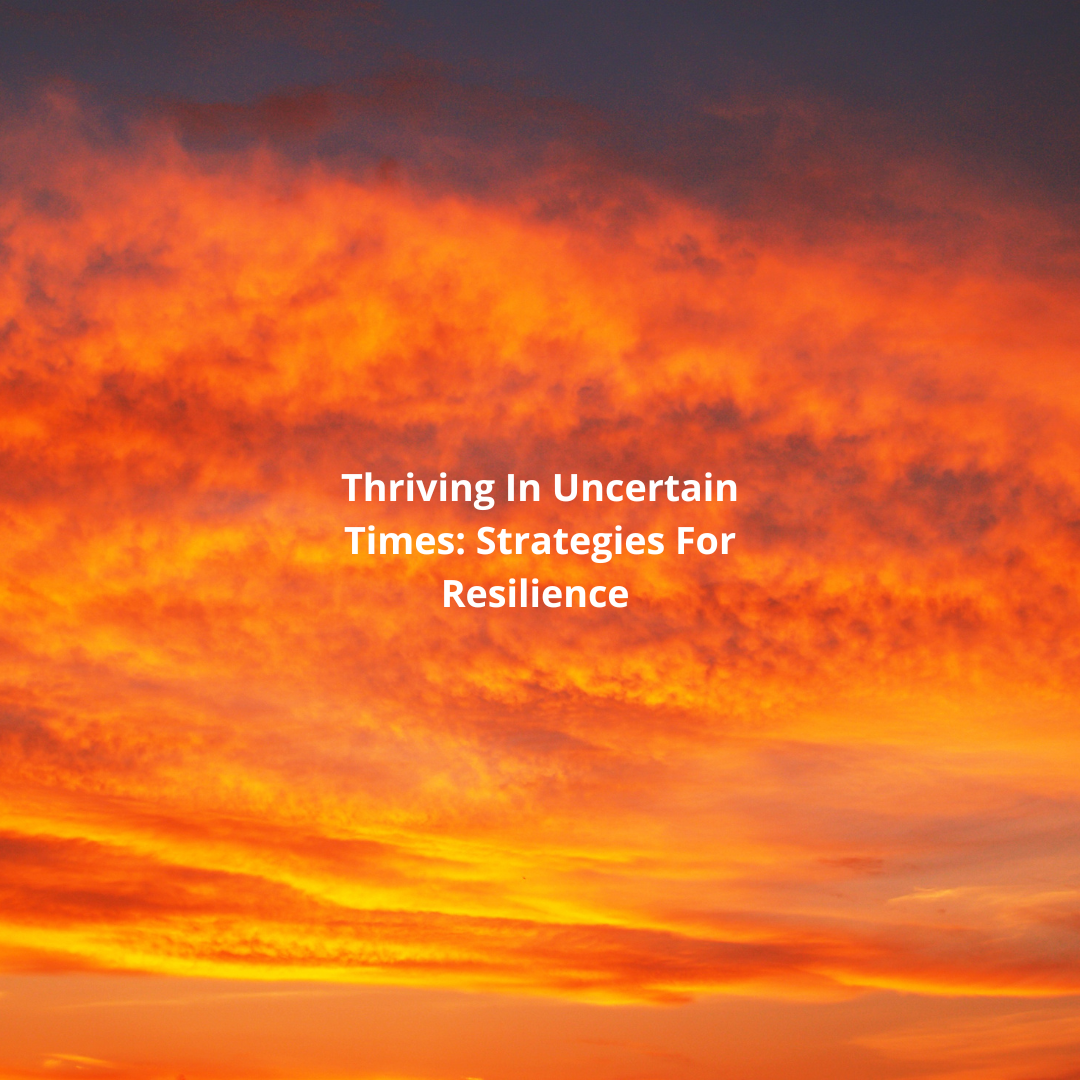thriving in uncertain times requires a combination of adaptability, self-care, and a positive mindset. By embracing change, fostering strong connections, and prioritizing your well-being, you can build resilience that not only helps you weather storms but also propels you toward future successes. Remember, resilience is a skill that can be cultivated, and each challenge is an opportunity for growth.
Navigating Uncertainty: Strategies for Resilience.
In the face of life's unpredictability, developing resilience becomes paramount. Uncertain times can evoke anxiety and stress, but they also present opportunities for growth and adaptability. Let's explore strategies to not just survive but thrive in the midst of uncertainty.
Embrace Change
Change is the only constant, and accepting it can be a powerful first step. Embrace the idea that uncertainty brings opportunities for personal and professional development. Flexibility allows you to navigate unforeseen challenges with a positive mindset.
Cultivate a Growth Mindset
View challenges as opportunities to learn and grow. A growth mindset fosters resilience by reframing setbacks as stepping stones to success. Approach each obstacle as a chance to acquire new skills and perspectives.
Establish Routine and Structure
Creating a sense of normalcy in uncertain times provides stability. Establish daily routines that include self-care, work, and leisure. Structure helps maintain focus and discipline, counteracting the chaos of unpredictability.
Foster Strong Connections
Building a support network is crucial for resilience. Strengthen relationships with friends, family, and colleagues. Share experiences and lean on each other for support. Connecting with others fosters a sense of belonging and mutual encouragement.
Practice Mindfulness
Mindfulness techniques, such as meditation and deep breathing, can anchor you in the present moment. These practices reduce stress and anxiety, enhancing your ability to respond calmly and effectively to uncertainty.
Set Realistic Goals
Break down larger goals into manageable tasks. Setting realistic and achievable objectives allows you to make progress, even in uncertain times. Celebrate small victories along the way to maintain motivation.
Stay Informed, but Limit Exposure
Being informed is essential, but constant exposure to negative news can be overwhelming. Stay updated on relevant information, but set boundaries to protect your mental well-being. Focus on what you can control and take meaningful actions.
Prioritize Self-Care
Invest time in self-care activities that nourish your physical, mental, and emotional well-being. Adequate sleep, regular exercise, and engaging in hobbies provide a foundation for resilience.
Learn from Adversity
Every challenge presents an opportunity for personal growth. Reflect on past adversities and identify the lessons learned. This reflection can instill confidence in your ability to overcome future uncertainties.
Seek Professional Support
If uncertainty becomes overwhelming, seeking professional help is a sign of strength. Therapists, counselors, or mentors can provide valuable guidance and support during challenging times.


























